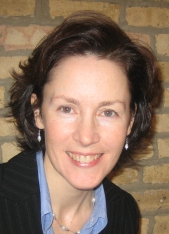Somewhere along my storytelling journey, I started to notice people using storytelling in very unexpected ways in technical fields — areas like user experience design, agile software development, and software testing. I’m thrilled that Karen N. Johnson, who uses story in software testing, brought her wise observations to the Q&A series. This Q&A with her will appear over the next five days.
 Bio: Karen N. Johnson is an independent software test consultant. She is the owner of Software Test Management, Inc. Karen has been involved in software testing for more than two decades.
Bio: Karen N. Johnson is an independent software test consultant. She is the owner of Software Test Management, Inc. Karen has been involved in software testing for more than two decades.
Karen has extensive test management experience. Her work is often focused on strategic planning for testing on a variety of software projects. Throughout Karen’s career she has gained hands-on experience with many different types of software. For example, she’s worked with banking, manufacturing, and ecommerce software was well as content management systems, contact management systems, medical device software, and business intelligence initiatives.
Karen also teaches classes in software testing. Her classes include how to build a software test strategy and a SQL class for testers. She frequently teaches tutorials as software testing conferences.
Most recently, she has been focused on developing a sense of community for software testers working in the area of regulated software testing. She is the co-founder of the WREST workshop.
She is also currently writing a chapter for a book that will be coming out from O’Reilly publishers slated to be called Beautiful Testing, about testing and how it is beautiful. Beautiful Testing is a collection of chapter-length essays on testing written by a several well-known experts in the field of software testing. The book is expected to be released late in 2009.
Karen is an international keynote speaker. She speaks frequently on software test strategy. She also frequently speaks on storytelling and software testing. She has published numerous articles on software testing as well as recorded webcasts. She also regularly blogs about her practical experiences with software testing.
Q&A with Karen N. Johnson (Question 1):
Q: In your presentation titled “Learning How to Tell the Story Behind Your Test Results,” you state: “Our purpose is to find the meaning in test results and to be able to tell the story from our analysis in order to bring meaning to data.” How did you initially come across the idea of marrying the fields of software testing and storytelling? What attracted you to storytelling?
A: Have you ever experienced a pull in a certain direction? That’s how I feel about storytelling. It seemed to me like books about storytelling were finding their way into my hands at bookstores. The subject of storytelling kept popping up in front of me from multiple directions. When I first started investigating storytelling it wasn’t conscience, I just followed what interested me. After reading, The Story Factor, I began consciously seeking out information on the topic and was actively working on ways to apply the concept of using stories in my work.
I joined a local storyteller’s guild and started to attend storytelling events.
When I met storytellers, especially those who use story combined with business, I began to ask them to tell me their stories about storytelling. One reason I enjoy asking tellers to tell me about using story as opposed to asking for a story is so I gain a deeper sense of how storytelling has integrated itself into who they are. I’m interested in having a discussion on the topic with them, as opposed to them being “on stage” and delivering a rehearsed story. It’s my experience and opinion that strong or perhaps naturally gifted tellers acquire the skill deeply. It becomes part of who they are.
And in fact, I see this same cross over with software testers. Software testers who truly love their work see everything as a testing possibility. If you analyze software all day, it’s nearly impossible to stop being analytical about well nearly everything. Testers gain strong observation skills, the ability to focus deeply and have developed a perpetual sense of curiosity about how things function. How do you turn that mindset off when you’ve been working as a tester for years? The answer might easily be you don’t. You might love what you do and can’t imagine taking anything at face value without wanting to know more.
I have plenty of times in my work that I’m piled deep with reams of information and I have to find ways to sort, compile, discern and then deliver information. I spend time looking for patterns, looking for evidence, always on the prowl as it were to solve issues and I find storytelling is a natural way for me to share my findings with other people.
Storytelling has a strong appeal to me. I love to read and become immersed in a story, to lose sense of time and place. It seems to me, we all pause when someone tells a story. In a technical field such as software testing, perhaps story gives us a chance to put the analytics aside and think about the information in a more reflective way, to take the time to ponder and muse.
